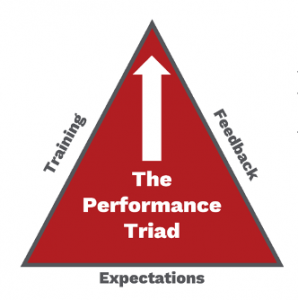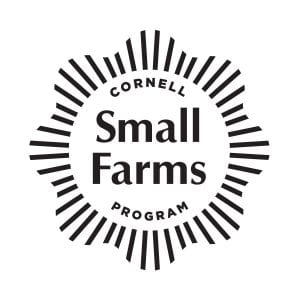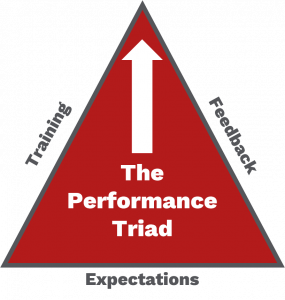 Cornell Ag Workforce Development has launched its third opportunity for Spanish speakers to engage in our Ag English Mentorship program at a limited discounted rate of just $99/person. Registration closes April 16.
Cornell Ag Workforce Development has launched its third opportunity for Spanish speakers to engage in our Ag English Mentorship program at a limited discounted rate of just $99/person. Registration closes April 16.
Are you ready to help your Spanish-speaking farm employees advance their careers and strengthen communication on your farm? The Agricultural English Mentorship (AEM) program, created by Cornell Agricultural Workforce Development (CAWD), is designed to address the language challenges faced by many farm workers and to provide them with the skills they need to succeed.
With over 60% of farm employees in the U.S. being native Spanish speakers, language barriers can impede productivity and career advancement. The AEM program offers a solution by providing farm employees with the opportunity to improve their English language skills in a way that is practical, engaging, and directly relevant to their daily work on the farm.
What is the Agricultural English Mentorship (AEM) Program?
The AEM program combines professional English instruction, personalized mentorship, and hands-on learning to enhance the language skills of Spanish-speaking farm employees. The program is designed to be both educational and practical, incorporating real-world farm scenarios that directly relate to the work your employees are doing every day.
A mentor must register at no additional cost with the English learner and commit to 15 minutes of mentorship each week. Mentors do not need to know Spanish to participate. The dual goals are to teach specific farm terminologies and to strengthen relationships between the English-speaking mentors and their Spanish-speaking employees while learning English.
Course Format:
- Agricultural Focus: AEM is tailored specifically for Spanish-speaking farm employees, using visual and auditory learning tools that are closely linked to farm work and terminology.
- English Instruction: Participants can learn at their own pace with pre-recorded videos, followed by live Zoom sessions where instructors provide individualized guidance on topics like pronunciation, grammar, and conversational skills.
- Mentorship: Each farm is encouraged to assign an English-speaking mentor to meet with employees weekly. These 15-minute sessions will focus on farm-specific vocabulary and exercises, fostering stronger relationships and better communication between Spanish-speaking employees and English-speaking leadership.
Course Topics Include:
- Lesson 1: The Alphabet and Vowel Sounds
- Lesson 2: Introductions and Greetings
- Lesson 3: Farm Mission Statements
- Lesson 4: The History of the Farm (Learning Numbers)
- Lesson 5: The Employee Handbook
- Lesson 6: The Values and Culture of the Farm
By participating in AEM, farm employees will gain confidence in their English skills, helping to improve workplace communication, enhance productivity, and open doors to career advancement.
Course Dates and Materials:
This course is offered virtually through the Moodle app, accessible from your phone or computer. Materials will be available beginning April 14, and live discussion sessions will be held via Zoom every Friday from April 18 through May 23, 2025 from 2-3 PM EDT. Participation in the Zoom sessions offers valuable collaborative learning opportunities and personalized guidance from instructors, so attendance is highly encouraged. To get the most out of the course, it is recommended that you dedicate at least two hours per week to the activities. Having an English-speaking mentor on your ranch is a key component to success in the program.
We highly encourage attendance at these live Zoom sessions to maximize learning and take full advantage of the personalized instruction available. To get the most out of the course, we recommend that participants set aside at least two hours per week for course activities. The involvement of an English-speaking mentor is a critical component of success in this program and will greatly enhance the overall learning experience.
Register: https://cvent.me/ZOl88m
For more information or to sign up for the Agricultural English Mentorship program, contact Mary Lewis at ml2656@cornell.edu
Supported by Northeast Extension Risk Management Education

TRANSLATED BELOW
Desarrollo de la Fuerza Laboral Agrícola de Cornell ha lanzado su tercera oportunidad para que hispanohablantes participen en nuestro programa de Mentoría en Inglés Agrícola con un descuento limitado de solo $99 por persona. La inscripción cierra el 16 de abril.
¿Listo para ayudar a sus empleados agrícolas hispanohablantes a progresar profesionalmente y fortalecer la comunicación en su finca? El programa de Mentoría en Inglés Agrícola (AEM), creado por Cornell Agricultural Workforce Development (CAWD), está diseñado para abordar las dificultades lingüísticas que enfrentan muchos trabajadores agrícolas y brindarles las habilidades necesarias para el éxito.
Con más del 60% de los empleados agrícolas en EE. UU. siendo hispanohablantes nativos, las barreras lingüísticas pueden obstaculizar la productividad y el desarrollo profesional. El programa AEM ofrece una solución al brindarles a los empleados agrícolas la oportunidad de mejorar sus habilidades en inglés de una manera práctica, atractiva y directamente relevante para su trabajo diario en la finca.
¿Qué es el Programa de Mentoría en Inglés Agrícola (AEM)?
El programa AEM combina instrucción profesional en inglés, mentoría personalizada y aprendizaje práctico para mejorar las habilidades lingüísticas de los empleados agrícolas hispanohablantes. El programa está diseñado para ser tanto educativo como práctico, incorporando situaciones reales de la vida agrícola que se relacionan directamente con el trabajo diario de sus empleados.
Un mentor debe registrarse sin costo adicional con el estudiante de inglés y comprometerse a 15 minutos de mentoría semanales. No es necesario saber español para participar. El objetivo es enseñar terminología agrícola específica y fortalecer las relaciones entre los mentores angloparlantes y sus empleados hispanohablantes mientras aprenden inglés.
Formato del curso:
- Enfoque agrícola: AEM está diseñado específicamente para empleados agrícolas hispanohablantes, utilizando herramientas de aprendizaje visuales y auditivas estrechamente relacionadas con el trabajo agrícola y la terminología.
- Instrucción en inglés: Los participantes pueden aprender a su propio ritmo con videos pregrabados, seguidos de sesiones en vivo por Zoom donde los instructores brindan orientación individualizada sobre temas como pronunciación, gramática y habilidades de conversación.
- Mentoría: Se anima a cada granja a asignar un mentor angloparlante para que se reúna con los empleados semanalmente. Estas sesiones de 15 minutos se centrarán en vocabulario y ejercicios específicos de la granja, fomentando relaciones más sólidas y una mejor comunicación entre los empleados hispanohablantes y los líderes angloparlantes.
Temas del curso:
- Lección 1: El alfabeto y los sonidos vocálicos
- Lección 2: Presentaciones y saludos
- Lección 3: Declaraciones de misión de la granja
- Lección 4: La historia de la granja (Aprendiendo los números)
- Lección 5: El manual del empleado
- Lección 6: Los valores y la cultura de la granja
Al participar en AEM, los empleados de la granja adquirirán confianza en su inglés, lo que les ayudará a mejorar la comunicación en el trabajo, a aumentar su productividad y a abrirles las puertas al desarrollo profesional.
Fechas y materiales del curso:
Este curso se ofrece virtualmente a través de la aplicación Moodle, accesible desde su teléfono o computadora. Los materiales estarán disponibles a partir del 14 de abril y se realizarán sesiones de discusión en vivo por Zoom todos los viernes del 18 al 23 de mayo de 2025, de 2 a 3 p. m., hora del este. La participación en las sesiones de Zoom ofrece valiosas oportunidades de aprendizaje colaborativo y orientación personalizada por parte de los instructores, por lo que se recomienda encarecidamente la asistencia. Para aprovechar al máximo el curso, se recomienda dedicar al menos dos horas semanales a las actividades. Contar con un mentor angloparlante en su rancho es clave para el éxito del programa.
Recomendamos encarecidamente la asistencia a estas sesiones de Zoom en vivo para maximizar el aprendizaje y aprovechar al máximo la instrucción personalizada disponible. Para aprovechar al máximo el curso, recomendamos que los participantes dediquen al menos dos horas semanales a las actividades del curso. La participación de un mentor angloparlante es fundamental para el éxito de este programa y mejorará considerablemente la experiencia de aprendizaje en general.
Registro: https://cvent.me/ZOl88m
Para obtener más información o inscribirse en el programa de Mentoría en Inglés Agrícola, comuníquese con Mary Lewis en ml2656@cornell.edu.
Con el apoyo de Northeast Extension Risk Management Education





 Cornell Ag Workforce Development and the South Central NY Dairy, Livestock and Field Crops team are offering a series of hands-on regional training workshops from 1:00 to 4:00 PM at two locations on August 23 and 24.
Cornell Ag Workforce Development and the South Central NY Dairy, Livestock and Field Crops team are offering a series of hands-on regional training workshops from 1:00 to 4:00 PM at two locations on August 23 and 24.


